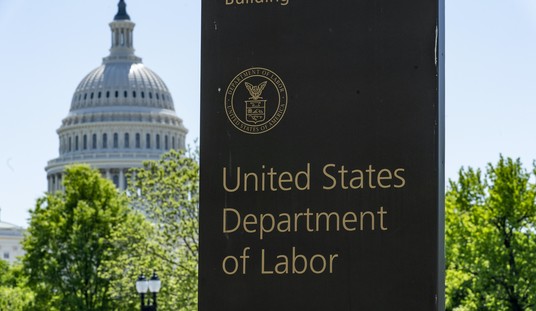
Screenshot from this video
Van Jones is an interesting character.
No question quite far left, even very radical at points in his life.
But with the ability to see and work across the aisle to get things done, as he showed with his work on criminal justice reform and the First Step Act with Jared Kushner and the Trump administration.
He was honest and gave credit where credit was due on it being a joint effort. He wasn’t put off by the general leftist requirement to bash Trump for everything but praised Kushner and Trump for the effort. He got that it’s better to actually get things done rather than stand in a corner and throw a fit, as many Democrats have been doing since Trump was elected.
After the State of the Union, he gave an honest assessment of what he thought about the speech and warned Democrats they were in trouble, that they needed to “wake up,” that Iowa was a debacle and Trump was going after the black vote.
CNN’s Van Jones: President Trump’s “strong speech” and Iowa “debacle” are a “big wake up call for Democrats” pic.twitter.com/YVdeCfXDPE
— Steve Guest (@SteveGuest) February 5, 2020
From Real Clear Politics:
I think the last 24 hours have been a big wake up call for Democrats. That’s what I think. The Iowa caucus was a debacle. And this was a very strong speech. And it shows what he thinks he needs to do to win. I think I should be very clinical about this. You’re exactly right. He knows he’s got to give a lot of red meat to his base, and he gave it. Religious liberty, abortion, all of it, the military, et cetera.
He didn’t like Trump’s position on illegal immigration or sanctuary cities, but he said what Trump is saying was going to resonate.
At the same time, warning the Democrats. What he was saying to African-Americans can be effective. You may not like it but he mentioned HBCUs, black colleges have been struggling for a long time, a bunch of them have gone under, he threw a lifeline to them in real life in his budget. He talked about that. He talked about criminal justice reform. He talked about opportunity zones…
The thing about it is, and we’ve got to wake up, folks, there’s a whole bubble thing that goes on, he said s-hole nations, therefore all black people are going to hate him forever. That ain’t necessarily so. I think what you’re going to see him do, you may not like my rhetoric, but look at my results and my record to black people, if he narrow casts that, it’s going to be effective. Which means, as we move through this primary process, we’ve got to pay a lot more attention both to what’s going on with the Latino vote. Are we going to get a benefit in terms of having them respond and with the black vote. It it going to be a split off, especially for black male voters? We’ve got to be clinical about this stuff. We get so emotional about it. That was a warning to us. That was a warning shot across the bow to us Democrats that he’s going after enough black votes to cause us problems. It’s not just suburban votes, he’s going after black votes.
Indeed, Trump is and he’s going to get those votes too. The only question might be how much.
Trump has reached out since he started, perhaps more than any Republican president in recent memory, with things like HBCUs, criminal justice reform and opportunity zones. Not just with talk, but with actual achievements, as Jones has noted. Through his efforts to bring back jobs and boost the economy, he’s pushed unemployment and black unemployment to record lows. “It’s the economy, stupid” is an old maxim and it’s true here too. People are going to see their lives are better, their economy is better under Trump.
It’s translating into numbers and increased approval, as the Washington Examiner explains, with a 51% approval rating overall and 22% black approval in the Zogby poll which tends not to be kind to Trump.
Zogby’s survey included an oversampling of Hispanic and black voters to get a good gauge of their support for the president, especially in head-to-head matchups with Democrats.
What he found was a resurgence of support among independents, suburbanites, suburban women, and an expansion beyond his 2016 support among black and Hispanic voters.
All of that could be critical in the 2020 election in November and could give Trump a winning edge, said Zogby.
It’s been higher even than that in polls like Rasmussen which has it in the 30s.
If he gets more than he had in 2016, if that approval number translates, as Van Jones is warning, Democrats are definitely in deep trouble.
Trump got eight percent of the black vote in 2016 when he won, according to Real Clear Politics.
As they noted last year:
Even 20 percent African-American support for Trump would all but dismantle Democratic Party presidential hopes for 2020. Hillary Clinton lost the 2016 election with 88 percent of the black vote. That was about a six-point falloff from Barack Obama’s share of the black vote in 2012.
But far more importantly, an estimated 2 million of the African-American voters who cast ballots for Obama in 2012 simply did not show up at the polls in 2016 to vote for the off-putting Clinton.
Even a small drop in African-American turnout or anything less than the usual 85 percent to 90 percent supermajority for a Democratic presidential candidate on Election Day can prove fatal.














Join the conversation as a VIP Member